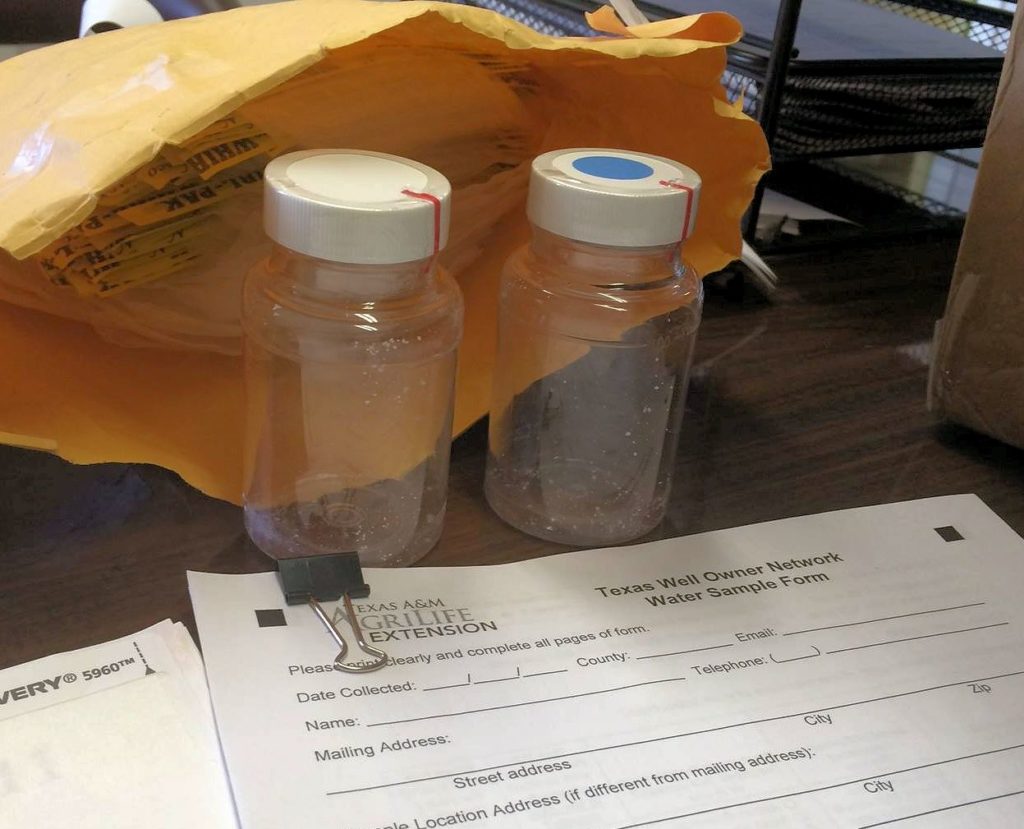The Texas Well Owner Network, TWON, is hosting a “Well Informed” water well screening Dec. 19 in Mont Belvieu to give area residents the opportunity to have their well water screened free of cost.

Water samples will be screened for contaminants, including coliform bacteria, E. coli, nitrate-nitrogen and salinity.
Water samples can be dropped off from 8:30-10 a.m. Dec. 19 at the following locations:
— Texas A&M AgriLife Extension Service office for Chambers County, 295 White Memorial Park Road, Anahuac.
— Commissioner Jimmy Gore’s office, 211 Broadway Ave., Winnie.
— Commissioner Tommy Hammond’s office, 10616 Eagle Drive, Mont Belvieu.
— Commissioner Billy Comb’s office, 7711 Texas Highway 146, Baytown.
— Commissioner Mark Tice’s office, 7911 S. Farm-to-Market Road 565, Mont Belvieu.
There is no cost per sample for this screening event.
The follow-up meeting to explain the results of the screenings will be at 6 p.m. Dec. 20 at the Mount Belvieu Library, Sam and Carmena Goss Memorial Branch, 1 John Hall Drive, Mont Belvieu.
The screening is presented by AgriLife Extension and the Texas Water Resources Institute, TWRI, in partnership with the AgriLife Extension office in Chambers County.
Sampling instructions
Joel Pigg, AgriLife Extension program specialist and TWON coordinator, Bryan-College Station, said the TWON program is for Texas residents who depend on household wells for their water needs.
“It is very important that only sampling bags and bottles from the AgriLife Extension office be used and all instructions for proper sampling are followed to ensure accurate results,” Pigg said.
Private water wells should be tested annually, he said.
Pigg said it is extremely important for those submitting samples to be at the Dec. 20 meeting to receive results, learn corrective measures for identified problems and improve their understanding of private well management.
Well water contaminants, concerns
Pigg said research shows the presence of E. coli bacteria in water indicates that waste from humans or warm-blooded animals may have contaminated the water. Water contaminated with E. coli is more likely to also have pathogens present that can cause diarrhea, cramps, nausea or other symptoms.
The presence of nitrate-nitrogen in well water is also a concern. Water with nitrate-nitrogen at levels of 10 parts per million is considered unsafe for human consumption, he said.
“These nitrate levels above 10 parts per million can disrupt the ability of blood to carry oxygen throughout the body, resulting in a condition called methemoglobinemia,” Pigg said. “Infants less than 6 months of age and young livestock are most susceptible to this.”
Salinity, as measured by total dissolved solids, will also be determined for each sample, he said. Water with high levels may leave deposits and have a salty taste. Using water with high levels for irrigation may damage soil or plants.
To learn more about the programs offered through the network or to find additional publications and resources, visit http://twon.tamu.edu. For more information, contact the AgriLife Extension office in Chambers County at 409-374-2123 or Pigg at 979-845-1461 or j-pigg@tamu.edu.
Funding for the Texas Well Owner Network is through a Clean Water Act nonpoint source grant provided by the Texas State Soil and Water Conservation Board and the U.S. Environmental Protection Agency. The project is managed by TWRI, part of Texas A&M AgriLife Research, AgriLife Extension and the Texas A&M University College of Agriculture and Life Sciences
-30-


